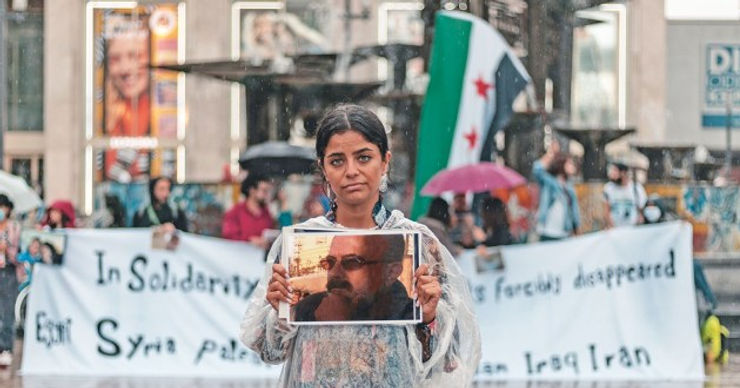By: Zerlina Tang
In 2011, 130,000 people were believed to be missing in Syria because of the uprising against President Bashar Assad that transformed into a civil war. Their loved ones are scurrying to find them still to this day, and there’s videos explaining how their miserable fates met to an end as Syrian security agents lead blindfolded prisoners into a pit, shot them, and burnt their dead bodies.
Umm Mohammed, the wife of a missing man, stated that “They (the people who took her husband) beat him up in front of my young daughter” and then took him away. The only news she has received about her husband is in 2015, when someone claimed to see him in the Syrian military’s 248 Branch prison, which is known for torturing people that are going against the government. “When someone is martyred, they’re buried and you know they’re dead,” she said. “In this case, you don’t know and you’ll always be wondering.”
Nowadays, people are campaigning for a search for their missing loved ones. In a war-torn region where tens of thousands of families in neighboring nations are waiting for word about their loved ones, establishing an international organization would be a big step. This institution would collect data about the missing people from their loved ones, and other agencies and organizations. Setting this whole program up “might set a precedent for addressing the suffering of different people in different parts of the world,” said Wafa Mustafa, whose father was an outspoken Assad critic that disappeared in Damascus in July 2013. Mustafa had joined her father in various protests. She welcomed the vote and investigating their fate like this could open the door for other human rights problems in Syria, such as the deplorable conditions for political detainees. “A lot should be happening, a lot should be done in parallel to this institution,” Mustafa stated.
And right now, the institution is showing that whistleblowers and defectors have come out with material in recent years, notably the so-called Caesar photographs, a collection of 53,000 images shot in Syrian jails and military hospitals. The photographs depicted captives’ tortured bodies. Hamed Hemo, who lives in the Kurdish-held city of Qamishli in northeast Syria, believes that an inquiry might reveal the fate of his missing kid.
Hemo has turned his living room into a shrine for his son, Ferhad, a journalist who was kidnapped by Islamic State militants in 2014 who never came home, along with a colleague, Masoud Aqil. After being released in a prisoner swap, Aqil moved to Germany. “To this day, our lives have completely changed,” Hemo stated, taking a cigarette draw. “His mother used to weigh 154 pounds, but she’s now down to 88 pounds.”
And right now, none of the missing people are seen going back to their families, much less even show up in public. However, the search program gave everyone a sense of relief and hope that they would meet their loved ones once again in the future.











